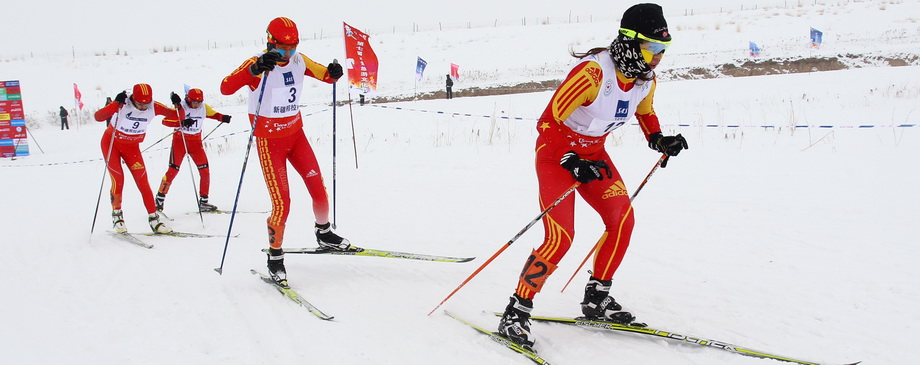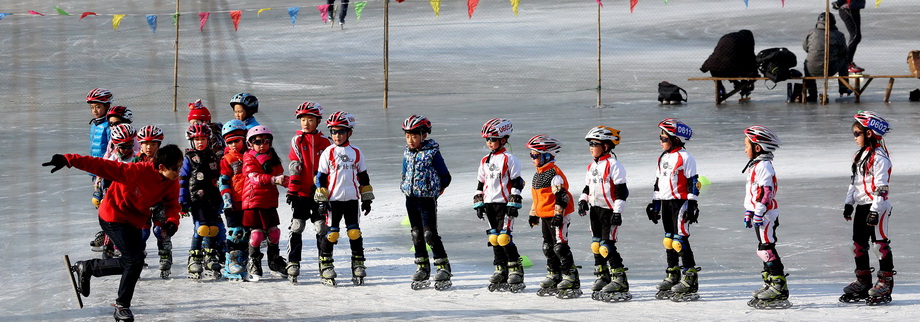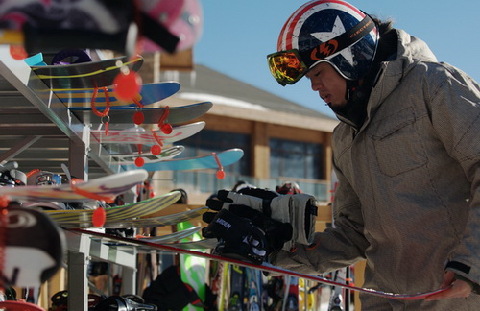

|
Editor's note |
|
Beijing, with co-host Zhangjiakou in neighboring Hebei province, won the bid for the 2022 Winter Olympics. Boasting a rich legacy from the facilities of the 2008 Olympics, and expertise hosting major international events, Beijing will be the only city to stage both the Summer and Winter Olympics. Winning the bid will exert a wide impact on the capital as well as its residents, so the below are something to expect from the Winter Olympics Games. |

In 2008, polluting factories were moved out of Beijing, and anti-smog regulations were implemented during the games. Efforts to curb pollutions ahead of the 2008 Games dramatically improved the air quality in Beijing, at least for a while. Once again, expectations are high that staging the Winter Olympic Games will push Beijing to reduce pollution and improve the air quality more effectively.
Beijing began implementing a five-year plan from 2013 that cost 130 billion US dollars to upgrade heating systems, cut car emissions and close heavy-polluting plants. According to an existing plan, the capital aims to cut PM2.5 density by 20 percent by 2017, compared with 2012. However, an environmental official of the city predicted the reduction could reach 25 percent.
Such efforts will not only be made in Beijing but in neighboring Hebei province and Tianjin municipality as well, as suggested by a development action plan to integrate the three places. Hopefully, blue skies will become a regular feature even after the Games.
In the co-host city Zhangjiakou, about 200 kilometers from Beijing, has abundant wind, solar and biomass resources and has set a goal to establish a world leading "low-carbon Olympic zone". The State Council has approved a renewable energy demonstration zone that aims to fully rely on renewable energy to provide electricity and heating for the Olympic center and venues.

Transportation
Although Beijing is the host city of the 2022 Winter Games, Chongli county of Zhangjiakou in Hebei will host some of the snow events.
The capital region is likely to benefit from investments in infrastructure, including the Beijing-Zhangjiakou intercity railways, expansion of Beijing subway systems, upgraded highway networks and another regional airport.
A high-speed railway linking Beijing and Zhangjiakou, where some of the skiing events will be held, is in the works, and the construction is scheduled for completion by 2019 to cut travel time from 4 hours to 50 minutes.
Within five years, 1,500 km of rail line will be operating in the region, placing it among the highest regional concentrations of rail lines globally, according to the national economic planner, which will help with exchanges between residents and businesses.

Winter sports
Beijing's vision is to develop a winter sports market for more than 300 million people in northern China.
With a rich legacy left by the summer Olympics, China plans to re-use 11 of 12 venues built for the 2008 Olympics and only needs to build a new rink for speed skating, effectively easing possible problems of facilities being left idle after the games.
China has shown its power in the Summer Olympics by topping the gold medal tally in Beijing. It has never dropped out of the top-three list since the Sydney 2000 Games. However, its best performance in the Winter Olympics was in the Vancouver 2010 Games where it was placed 7th in the medal standing with five golds. As the host, China will make an all-out effort to improve its performance in 2022 by securing the best resources, talents and prizes. And it would be interesting to see whether China can break into the top three on the medal tally.

Transformation
On the back of the Winter Olympics, the Beijing municipal government is looking at fostering sports-related industry as a new growth driver to power its economy.
The goal is to integrate the Winter Games with sustainable development plans for the wider region, focusing on clean energy, green technology, and improvement in ecology and air quality.
According to the government plan, Beijing aims to bring the value of its sports industry to 300 billion yuan by 2025, and develop world-class sports enterprises.
To encourage the industry, the city government plans to set up an investment fund to guide social capital into sports.
By 2025, China's sports industry will be valued at 800 billion U.S. dollars, generating around 600,000 new jobs.
Apart from the massive opportunities for Beijing, the 2022 Winter Olympics will also offer unprecedented benefits to its less developed neighbors and help them upgrade growth models.
Chongli County under Zhangjiakou city, where about 50 gold medals will be on offer for snow events in 2022, has evolved from a small, unknown place where residents relied on mining for income into a hot tourist destination for skiing fans.
Last year, the county received more than 2 million tourists that brought related revenue to 1.41 billion yuan.
The Winter Olympic Games are expected to further bolster local tourism and the skiing industry. Zhangjiakou expects the event to generate 350 billion yuan of investment and create 200,000 jobs for the city.
Tourism 
The country's plans to develop a winter sports industry will enhance Zhangjiakou's reputation as a tourist destination by upgrading its transportation system and facilities, such as hotels and restaurants.
The city has 33 three-star or higher-rated hotels and the number of similar hotels is expected to exceed 20 in Chongli county alone by 2020, which will be able to accommodate over 20,000 people daily and up to 4 million visitors annually, according to the website of the Beijing 2022 Olympic Winter Games Bid Committee.
Besides a ski area in Chongli county, local authorities have begun a 6.8-billion-yuan ($1.10 billion) project to develop an industrial park in the city's high-tech development zone, according to an announcement on the website of the Zhangjiakou Development and Reform Commission in April.